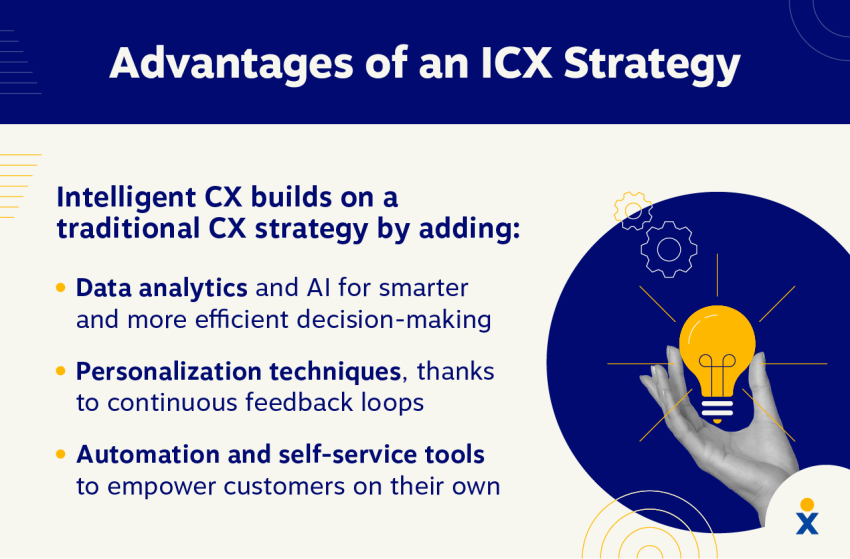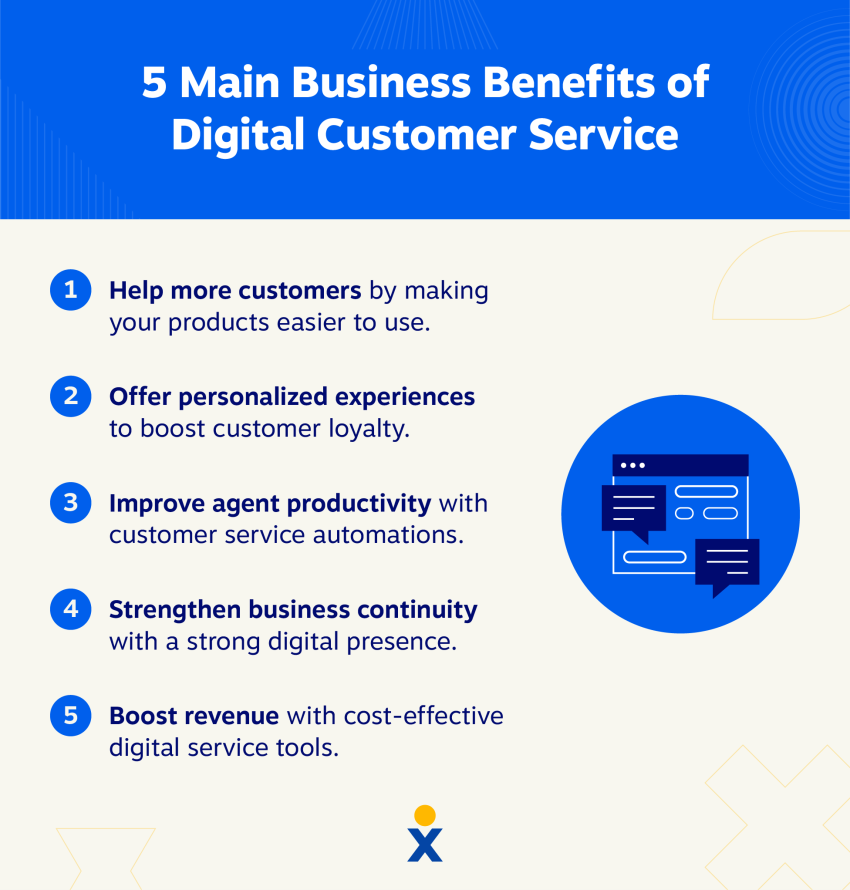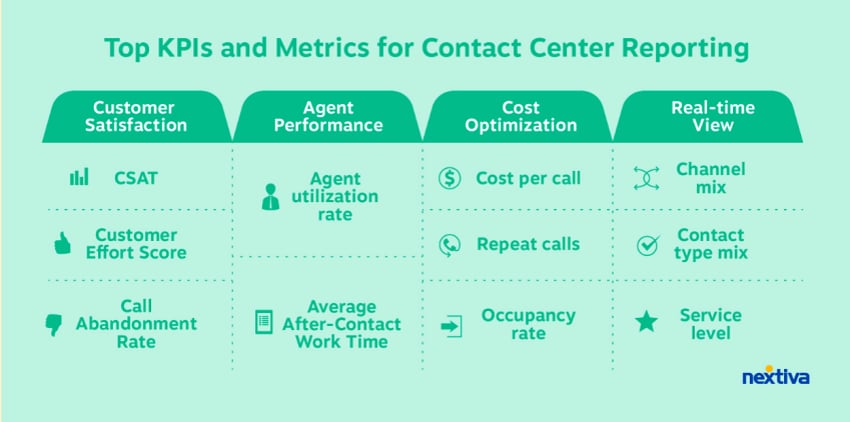AI has officially been around long enough for customers to embrace it. Our State of Customer Experience Report found that when customers received responses written by humans and generative AI, 57% preferred the AI-generated responses.
As more businesses invest in customer experience strategies, including artificial intelligence, customer expectations continue to rise. To stand out in a crowded field, you can develop an intelligent customer experience strategy that offers better insights and ROI on your CX investments.
In this guide, we’ll explore intelligent customer experiences and explain how to easily deliver them to your customers.
Take the AI Maturity Assessment
In just 5 minutes, get your personalized score and recommendations to move forward with AI.
Let’s get started.
Intelligent customer experience (ICX) refers to the use of advanced customer-centric technology like artificial intelligence (AI), machine learning (ML), and data analytics to enhance customer interactions with your business.
Why Intelligent Customer Experiences Are Important
ICX is crucial to differentiate your business in a competitive market and build lasting customer relationships because AI and ML can allow you to dig deeper into insights and customer behaviors and improve your overall CX. Then, you can use those insights to personalize your customer journeys and offer more tailored solutions and experiences.
| There are far more competitors in the marketing technology landscape today — in 2023, there were 11,038 available solutions, an increase of 11% from 2022 and 7,258% from 2011. Focusing on elevating and adapting CX with the power of AI can help you stay competitive and continue to evolve. |
While you focus on staying competitive, an ICX strategy can help you streamline operations by:
- Automating routine tasks for employees
- Providing self-service options for customers
- Creating detailed reports with actionable takeaways
This frees up time to prioritize your precious resources for the most important and complex issues, ensuring they receive your and your team’s full attention.
How Intelligent CX Works: 3 Key Components
Intelligent CX leverages AI, personalization, and self-service tools to build upon a traditional CX strategy. Whereas traditional CX still involves sourcing customer feedback and improving customer service, ICX takes it further. It uses data analytics, personalization techniques, and automation to inform how to adapt your CX approach.

By collecting and using data to personalize communications and tailor offerings, ICX can help increase your customer’s trust and satisfaction with your business.
Data analytics and AI integration
Intelligent CX begins with data collection from different sources, like all the different business communication channels where you reach your customers.
ICX thrives in an omnichannel environment, where all channels are connected and information flows seamlessly between them.
These communication silos might include:
- Chatbot conversations
- Transactions
- Feedback
- Staff notes
Once your ICX solution gathers that data, it processes and analyzes it using AI and ML algorithms. These algorithms can identify patterns, trends, and correlations in the data to gain insights into customer preferences and increase customer intelligence.

Personalization techniques
Customer expectations are always changing. More than ever, they expect you to anticipate their needs and jump to meet them.
As customers expect more personalized, seamless experiences on all their devices, you’ll be more likely to win them over if you can anticipate and meet those expectations. One in three AI strategy implementers thinks anticipating needs and personalizing experiences will give you better luck driving ROI for these solutions.
By continuously analyzing customer data and feedback, you can adapt your marketing and sales strategies (and even your product offerings) to stay relevant in a rapidly changing market.
Automation and self-service options
Automating routine tasks, such as basic customer inquiries and support requests, is a key component of an ICX strategy.
You might automate everyday operations for:
- Customer support like FAQs, basic troubleshooting, and escalating issues to human agents
- Personalized recommendations for products or content based on past purchases, browsing history, or preferences
- Order processing with confirmation, tracking, and delivery updates
- Appointment bookings and reminders to reduce administrative overhead
- Scaling your knowledge base using generative AI, streamlining real-time searches, providing contextual insights, and enabling domain-specific prompts for more accurate and relevant customer responses.
The more avenues you create for customers to answer questions independently, the fewer redundant inquiries your support team might have to field.

Benefits of an Intelligent Customer Experience
ICX can benefit your business by boosting key customer service metrics that increase your bottom line, like customer satisfaction, loyalty, retention, and lifetime value.
According to Forrester, more than one-half of customer experience leaders are improving their ability to analyze and understand customer experiences. That includes building tools and leveraging technology to get there. They’re doing this because intelligent CX can create more opportunities for improving customer satisfaction, increasing revenue, and increasing retention over time.

Let’s take a look at how that happens.
Enhance customer satisfaction and loyalty
ICX can help you provide more responsive, personalized, and effective customer support. When customers feel that they’re heard and understood, you strengthen their ties to your business. This satisfaction is key to measuring customer experience to ensure your efforts are paying off.

One way ICX enhances customer satisfaction is with 24/7 support support via AI-powered chatbots. These chatbots can handle simpler customer interactions round-the-clock without the need for human intervention. They can level up the issue with an agent if they require a human touch.
That fast responsiveness and ready availability can make customers more satisfied with their interaction and more likely to return to your business again. Satisfied customers are more likely to be brand ambassadors and recommend you to friends and family.
Increase revenue and profitability
In addition to increasing satisfaction and loyalty with your existing customers, ICX can also help you differentiate yourself from competitors and attract new customers looking for superior digital customer service.

With data insights detailing your customer preferences, ICX can also help you identify and target new market segments and tailor your offerings to meet the needs of those new segments.
Intelligent customer service can even help grow sales and conversion rates with targeted offers for current and prospective customers. You might be able to encourage customers to make additional, complementary purchases or upsell higher-value products or services.
Improve customer retention and lifetime value
An ICX strategy can help increase your customer lifetime value (CLV) or the customer’s total spend over your entire relationship. This can be because they:
- Purchase more often
- Make more expensive purchases
- Recommend you to others who become your customers
Either way, the insights you gain from ICX can help you encourage customers to spend more over time.
And if your customers are satisfied and spending more money, you’re on the right track to improving retention, a customer engagement KPI that indicates high customer loyalty. Those strong relationships you build with smart data insights and personalized recommendations fulfill your customers’ needs and encourage them to keep giving you their business.

Implementing Intelligent CX
It might be too good of an example, but Amazon is a clear leader in intelligent CX that creates loyal customers who spend more money. Amazon’s AI and ML algorithms create highly personalized and efficient experiences across its platform.
One of the key features of Amazon’s ICX is its recommendation engine, which analyzes customer browsing and purchase behavior to provide personalized product recommendations. This helps customers discover new products they’re likely to want, increasing sales and customer satisfaction.
Amazon also uses conversational AI to provide customer support, answer questions, and give purchase assistance. These chatbots are available 24/7/365 to reduce the burden on human agents while improving response times for millions of customers.
To implement an ICX strategy, you can follow these steps:
- Define any goals and objectives for your ICX strategy, like improving customer satisfaction.
- Invest in AI and ML to analyze customer data and personalize recommendations.
- Develop a personalization strategy based on your data insights for customer interactions.
- Implement AI-powered chatbots to provide round-the-clock customer support.
- Manage customer feedback to identify improvement areas and adjust your strategy.
- Train your team on the new ICX strategy and technologies to ensure you equip them for success.
- Measure and iterate continuously to adapt to changing customer needs and ensure your strategy remains relevant.
By following these steps, you can create and implement an ICX strategy like Amazon did and improve your customer experience across all touchpoints.
Nextiva: Satisfy Your Customers With Better Experiences
Your customers are hungry for great experiences around every corner. Every chat, email, SMS, or call is another opportunity to create a unique and memorable experience that will drive your customers back to you. With intelligent customer experience, igniting that spark is easier than ever.
Use the power of generative AI and machine learning to collect and analyze all the valuable customer data at your fingertips and usher in the future of customer experience. Then, implement a CX management strategy that harnesses that data to your advantage. That way, you’re prepared to cater to the most exacting customer needs and tailor offerings to new customer sets.
Connect with customers anywhere.
Nextiva makes it easy to meet your customers on their preferred digital channels with AI-powered chatbots.
Intelligent Customer Experience FAQs
For more on ICX and what it can do for your business, check out these frequently asked questions.
Implementing an intelligent customer engagement strategy can be challenging for several reasons:
Complexity with managing large volumes of customer data
Integration with AI and ML into existing business processes
Skill gaps with your current team and lack of experience with the cloud, AI, and ML
Regulatory compliance with data protection and privacy regulations like TCPA and HIPAA
Implementing an ICX strategy also requires a cultural shift in organizations. You need to ensure buy-in from employees and stakeholders for the most success.
ICX does pose some risks to customer privacy and security, but you can mitigate these risks with the proper measures and contact center compliance. The main risk is collecting and using sensitive customer data without proper consent or protection, which can lead to privacy breaches and unauthorized access to customer info.
You can mitigate these risks with strong data protection measures like encryption, access controls, and regular process audits.
The most important pillars holding up an effective customer experience strategy are personalization and consistency of services, customer convenience, and continuous feedback for improvement.

















 Customer Experience
Customer Experience 












